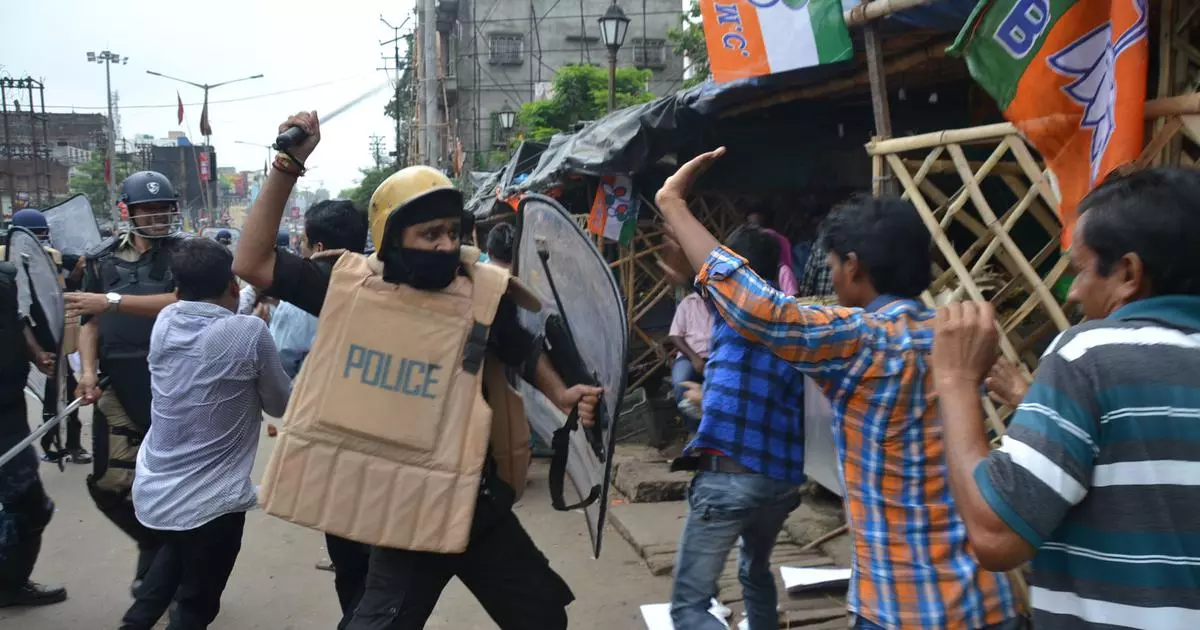
Judicial committee to check police excesses
text_fieldsImage only for representational purpose
Supreme Court NV Ramana has said that he was in favour of forming a standing committee for the common man to complain regarding excesses by officials including police officers and to investigate these complaints. He made the suggestion orally during a hearing in the context of the growing police brutality in the national spotlight. In Uttar Pradesh, Manish Gupta, a businessman, was beaten to death during a recent police raid. In Tamil Nadu, Jayaraj and his son Bennicks were killed due to police brutality last year. And in another case in which UP police killed a youth in fake encounter and after the police itself made an inquiry and dismissed the allegation. In this case, another bench of the Supreme Court imposed a fine of Rs 7 lakh on the UP state government. The father of the murdered young man has been going from pillar to post for two decades seeking justice. The court observed that governments protected the police despite the severity of the crime committed. After 19 years in that case, it took a court order to arrest the police officers who committed the crime. In Chhattisgarh, the Chief Justice has reserved judgment on a petition by accused ADGP Gurjinder Pal Singh seeking protection from arrest, the occasion when the CJI proposed that a committee. should be be constituted to safeguard the public. The background to this observation is the fact that police atrocities and other bureaucratic injustices have remained unresolved for several years, although the cases in the background have not been specifically mentioned. Moreover, they have been on the rise in recent times. Justice Ramana's view that the conduct of the bureaucracy and police officers is unacceptable is echoed by the common people of the country as well.
Two months ago, Chief Justice Ramana had criticized the actions of the police. He pointed out that human rights violations in India are highest in police stations. Many citizens are denied the constitutional right to legal aid. He said at a function organized by the National Legal Services Authority that legal knowledge and legal aid should be made available to citizens free of charge. Recent events and statistics confirm the concerns of the Chief Justice. According to figures submitted by the government to parliament in August, 348 people have died in police custody in the country over the past three years; 1189 people were beaten. In addition to this are cases not in records or figures or events with the traumatic effects of non-physical as well as mental torture. The fact is that such tendencies gain strength often thanks to the protection of the state. From the Human Rights Commission to politicians, there have been calls for the police to be punished. But no effective action has been taken. The Chief Justice himself speaks of the appointment of standing committees only as an idea. Justice Ramana said, "At one point I felt the need for permanent committees headed by the Chief Justices of the High Courts to hear and investigate abusive complaints against officials, including the police, but I put that off."
Justice Ramana may be seeking debate and consensus formation in this matter. But undoubtedly this is a proposal that needs to be decided on and implemented on urgent basis. Not only custody murders, fake encounters, torture and wrongful shooting, but other different forms of extra-legal rights-violations are also taking place. There is rampant phenomenon of departing from a humanitarian approach seen in filing or not filing of cases, choice of charges in filed cases, denying bail and even in the matter of denying straw to aged, sick detainee in jail. To stop this and to ensure constitutional protection to citizens, judicial standing committees are not only desirable but essential. This is a matter that calls for expeditious initiatives by the judiciary and human rights bodies. Needless to say, the longer this takes, the greater the number of people being subjected to injustice.























